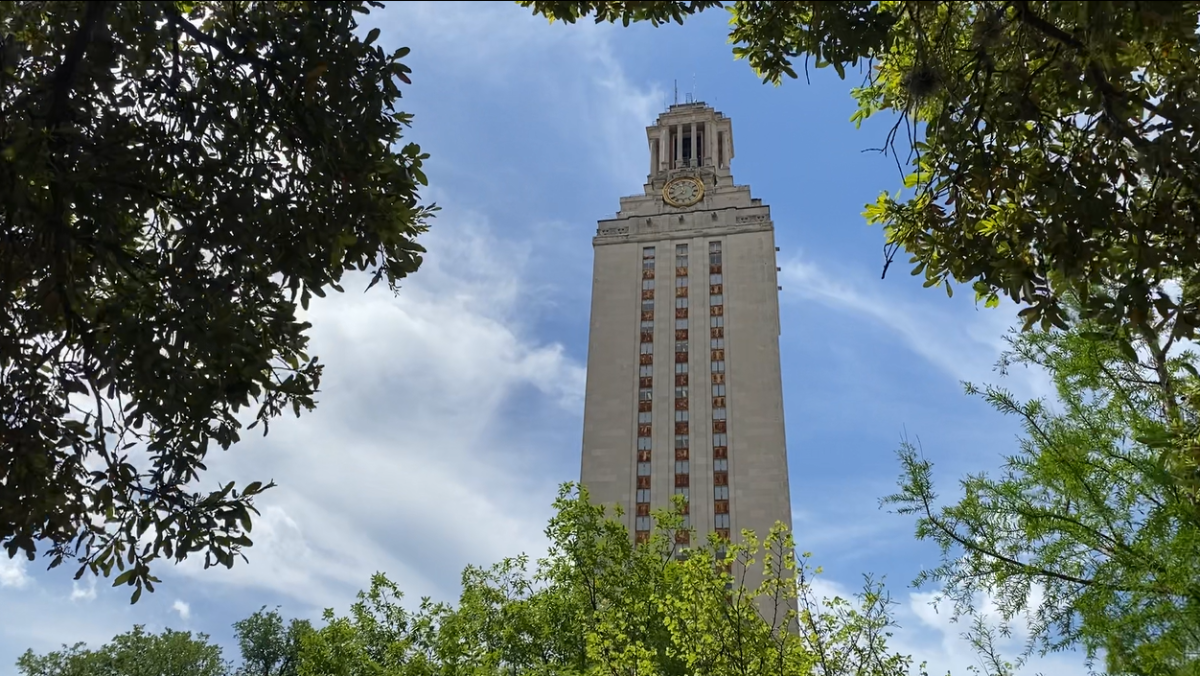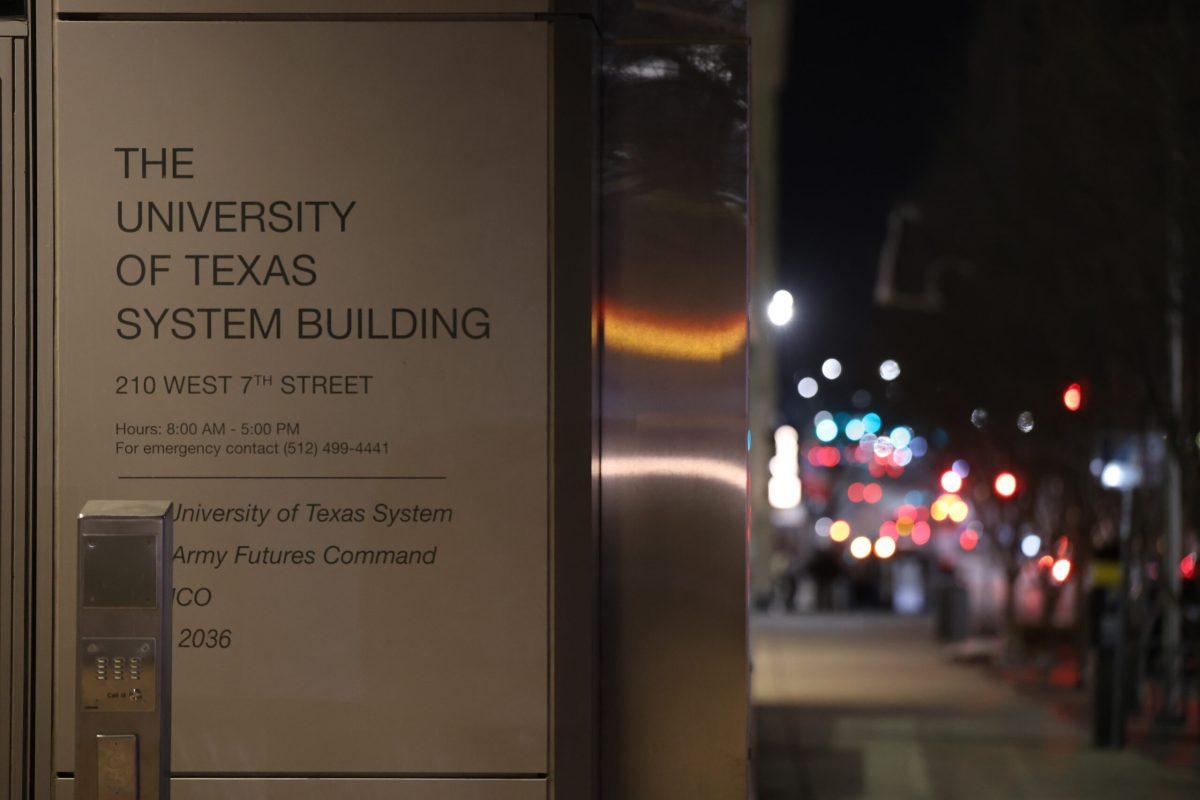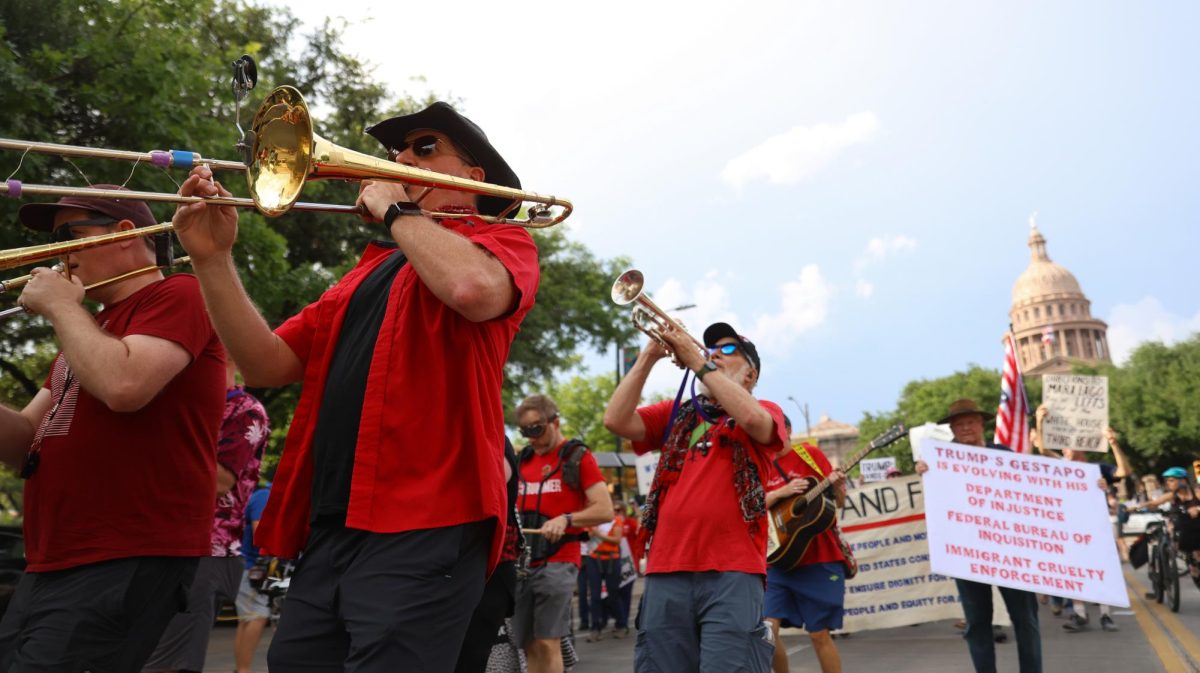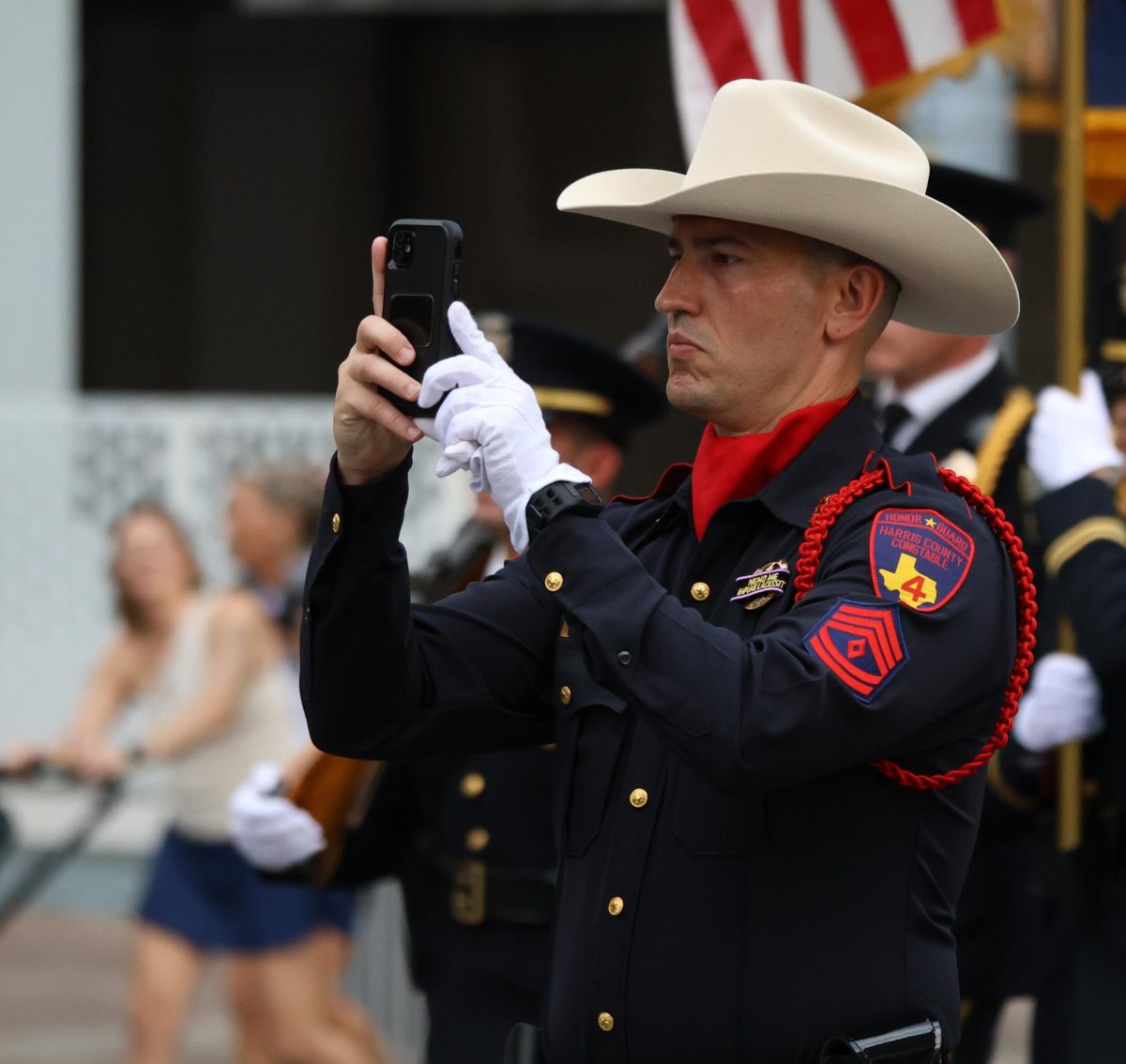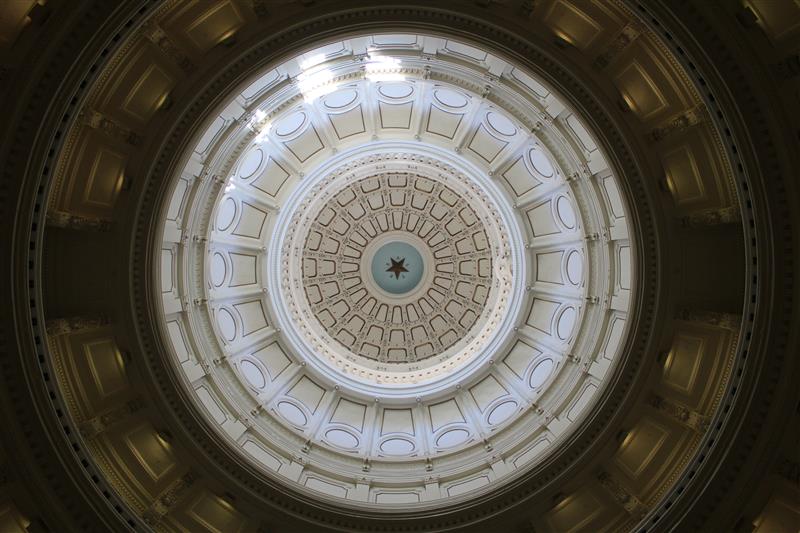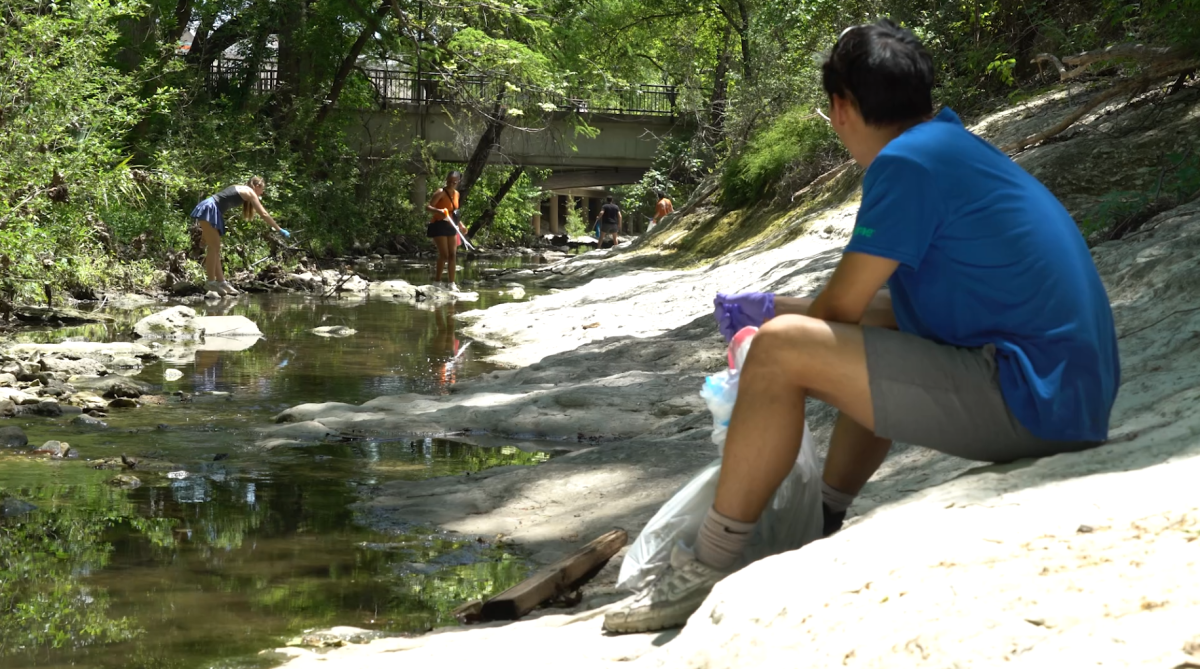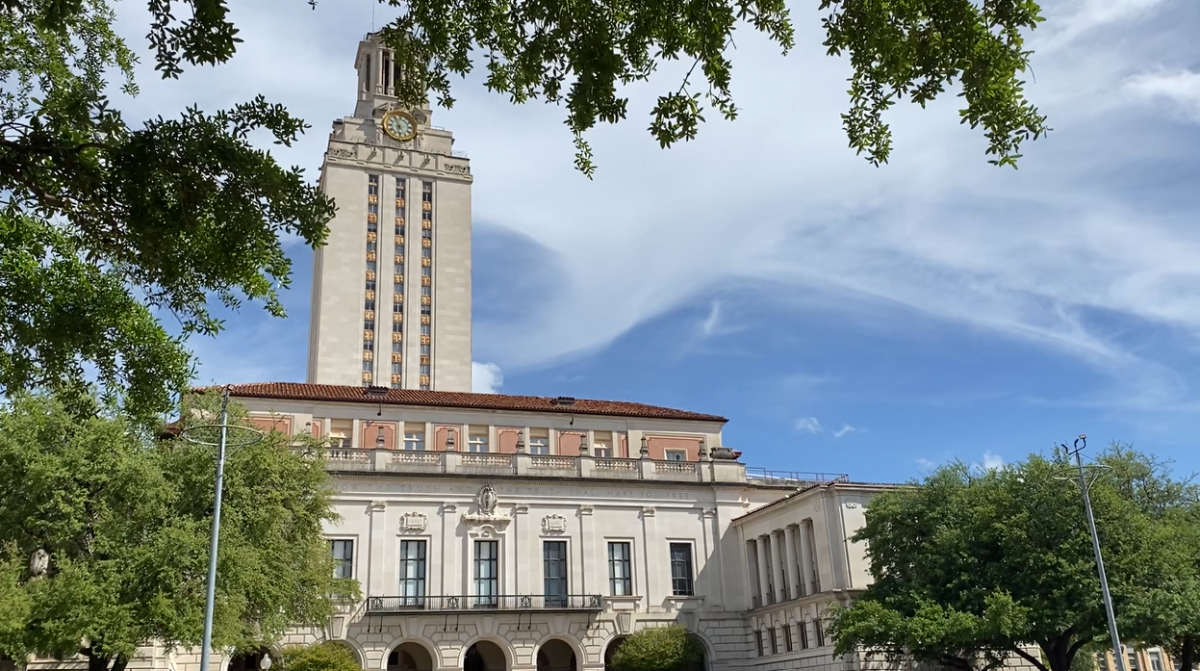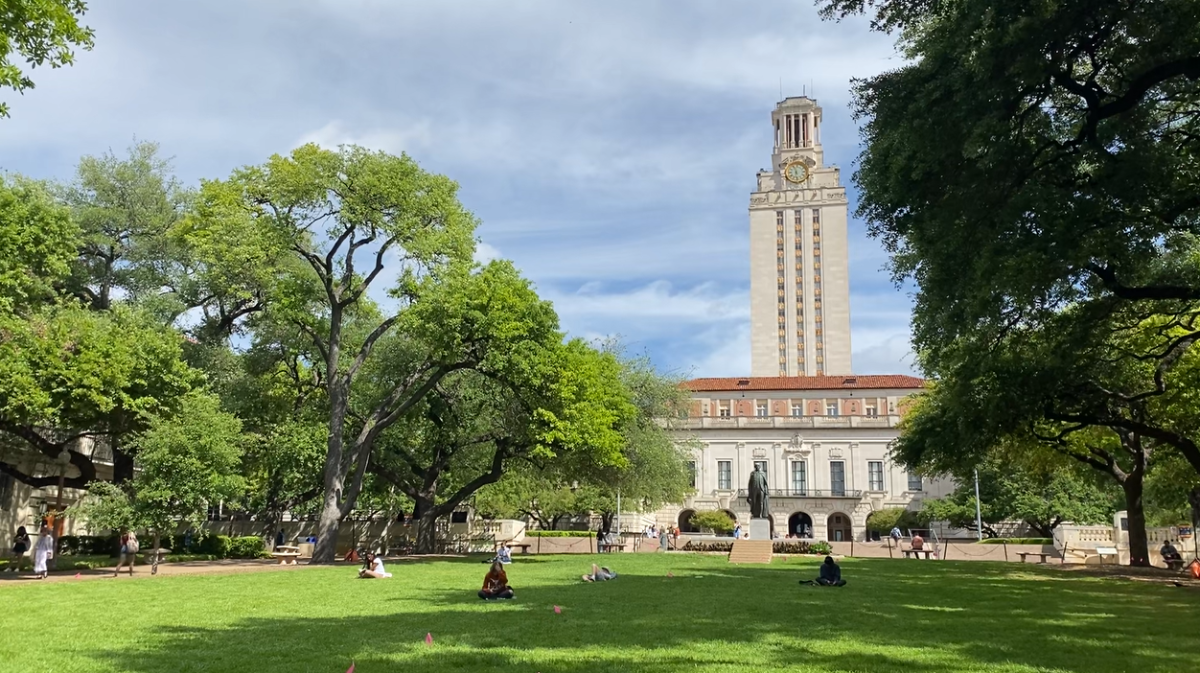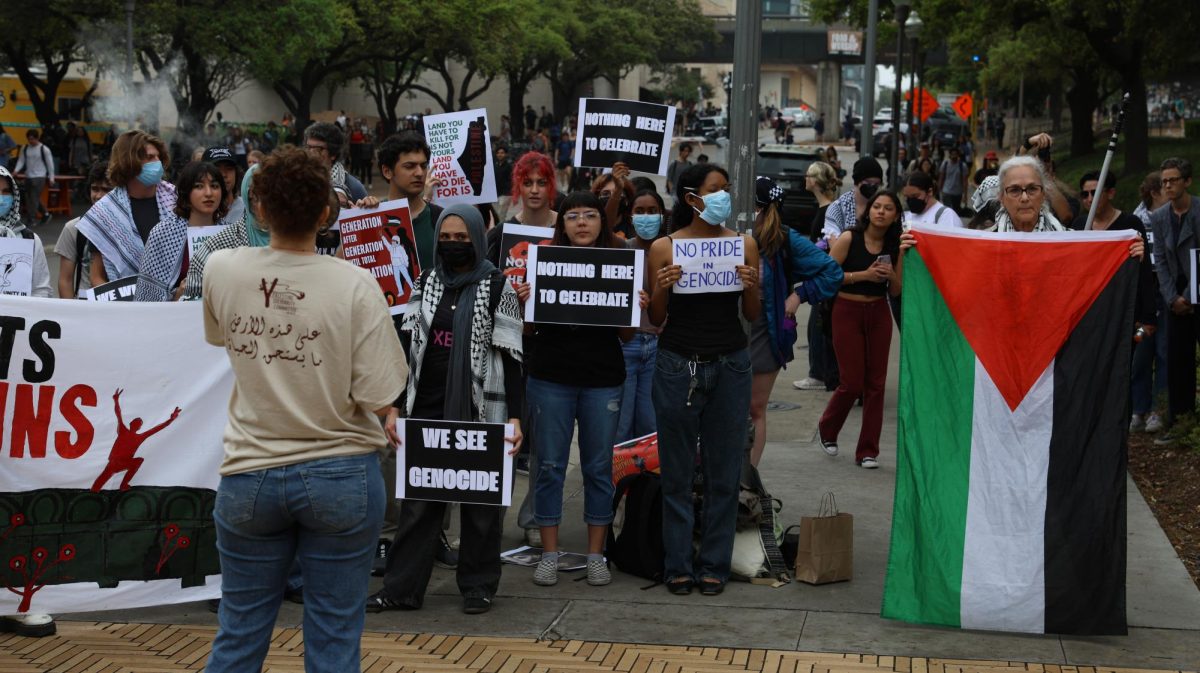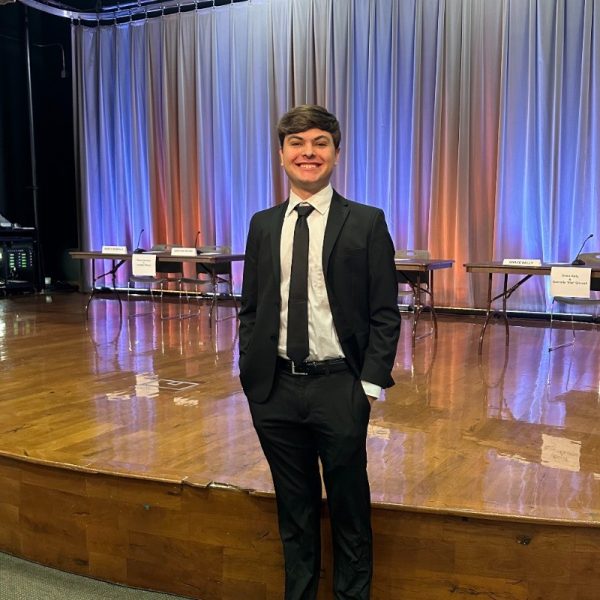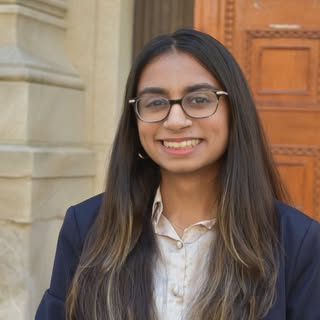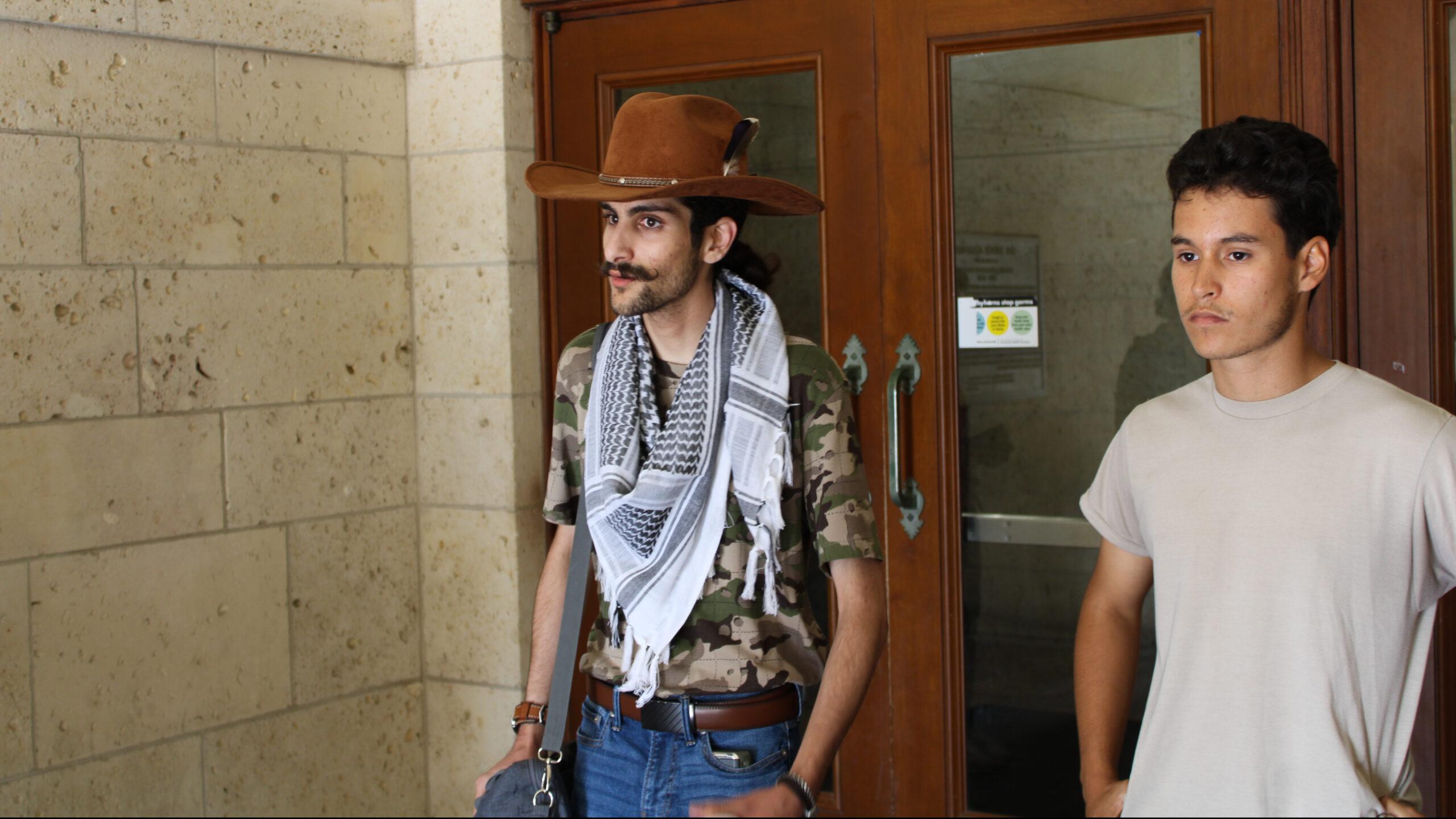
By [publishpress_authors_box]
Demonstrators from the Austin chapter of Students for a Democratic Society were denied access to the office of UT President Jay Hartzell when trying to deliver a letter Wednesday.
Arshia Papari and Luca Reyes of SDS were participating in a pro-Palestine demonstration and intended to deliver the letter of demands which called for “divestment from Israel and war profiteers,” boycotts and protection for free speech and advocacy on campus.
“The university is trying to tell us that hand-delivering a piece of paper to a university administrative desk is against university policy,” SDS said in a statement posted on Instagram Saturday. “The only reason they are making these baseless claims is because we are speaking out against UT’s funding of the Israeli occupation of Palestine.”
The demonstration began at the Gregory Gymnasium Plaza before organizers marched to the Main Building where they intended to deliver the letter. Upon arrival, a representative each from the offices of the president and provost were waiting outside to receive the letter.
Papari expressed his desire to enter the building and deliver the letter, but was told by Joe LoBrutto, director of the Event Readiness and Response unit, that there had been a previous agreement between himself and SDS for the exchange to happen outside.
Papari denies such an agreement was met by both parties.
An email exchange between LoBrutto and SDS leaders shows LoBrutto explaining the outdoor exchange process, however, it is unclear if SDS agreed to this proposal. LoBrutto claims they agreed during a phone call conversation with Reyes Wednesday morning, but Reyes said they did not reach this agreement.
“We never agreed to that, and that was just him stating that this is something he’s arranging,” Papari said. “But there was no statement that we must abide by this action.”
Papari and Reyes entered the building, but TSTV News and other media present were not allowed to follow. A university spokesperson later said in a statement that the access to the Main Building is limited to those who have business in the building.
Inside, Papari said they were told that it would be a violation of university guidelines for them to deliver the letter to the president’s office. Papari said he was told by LoBrutto that disciplinary actions may be brought against them for entering the building.
“We asked (LoBrutto), ‘Is this a policy violation for us to go inside and hand deliver this letter?’” Papari said. “He did not say it was not. I don’t know what he’s going to do with the Office of Student Conduct, but he did threaten misconduct charges and that there would be some sort of disciplinary action taken against us.”
Papari clarified they did not intend to demonstrate inside the building, their only intention being to deliver the letter.
“We did not want to disrupt anything,” Papari said. “We’re just two regular students, regardless of our affiliation with activism, wanting to go to the president’s office … and he did not allow us to do that.”
A statement from the university regarding the demonstration cited Chapter 13 of the Institutional Rules which states, “To avoid disruption of University operations, the Main Building may not be used for such public assembly at any time.”
A university spokesperson said in a statement that students are allowed in areas of the Main Building where student-facing services are located. It is unclear whether the president’s office qualifies as student-facing.
The letter was given to LoBrutto inside the Main Building, who told Papari and Reyes he would deliver it to the president’s staff, Papari said.
“Free speech is not a free-for-all,” a university spokesperson said in a statement.
After entering the building , Papari said he was under the impression he and Reyes would be escorted to the president’s office.
Papari said LoBrutto accompanied them to the third floor, one floor below where the president’s office is located, where they were escorted into another room. Inside, Papari and Reyes spoke with LoBrutto.
Mike Rosen, assistant vice president for university communications, and two uniformed UTPD officers were also present in the room. Papari said the interaction was intimidating and felt unnecessary.
“Why would you have a police presence for a perfectly reasonable First Amendment display other than to intimidate students?” Papari said. “The university has felt they need power and the numbers to suppress student voices if needed.”
This comes after pro-Palestine demonstrations on campus were met with arrests and a response from university police, the Austin Police Department and state troopers with the Department of Public Safety in April.
Papari said that he delivered a letter to the president’s office on behalf of the Palestine Solidarity Committee during the spring semester. While the lack of response from the president’s office sparked the April 24 protest, Papari said, the actual act of delivering the letter occurred unimpeded.
SDS’s letter calls for UT and the University of Texas/Texas A&M Investment Company to divest from weapons manufacturing that “directly finance and sustain the infrastructure of war, occupation, and human rights violations.”
It also demands UT cut academic ties with Israeli institutions that support apartheid in Israel, condemn human rights abuses and advocate for the end of the United States’ aid to Israel. SDS demanded the university protect free speech and advocacy on campus, as well as provide amnesty to students who have been “disciplined for expressing pro-Palestinian views.”
Papari expressed concern over the university’s priorities, drawing a contrast between Hartzell’s response to UT fans’ conduct during the Oct. 19 Texas-Georgia game and his response to the war in the Middle East.
“Hartzell emailed the whole student body, saying (the conduct) tarnished our reputation,” Papari said. “(He was) concerned about a $250,000 fine, but has no concern over … kids killed by American weapons.”

